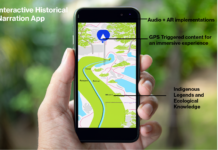Summary:
A special form of leadership, system leadership, is needed to tackle global challenges like food security, climate change, job creation, and gender parity. These challenges are complex and systemic, rooted in the actions and interactions of diverse yet interconnected, interdependent stakeholders. Leaders in business, government, and civil society increasingly recognize that
they cannot be addressed in a top-down, pre-planned, linear fashion and that point solutions don’t work. Instead, the solutions require stakeholders to change the way they operate at the global, national, and local levels. Over time, they must develop new technologies, products, services, business models, public service delivery models, policy and regulatory innovations, voluntary standards, and cultural norms and behaviors that together deliver new results. System leadership can help align the efforts of diverse stakeholders in order to accelerate this process, and ensure that it delivers more sustainable, inclusive business growth
and human development.
Personal Reflection: Tackling complex problems related to environmental changes requires design. Design is the bridge between different research fields and findings and the “how” of solving these problems. This report provides information on a macro-level on how to lay out these problems and different parts and agency that needs to be taken to tackle them, providing me with a guideline as well as base on a framework for organizing and tackling the problems my research aims to address, in a ample scope.
Reference:
Nelson, J and Jenkins, B (2016). TACKLING GLOBAL CHALLENGES: Lessons in System Leadership from the World Economic Forum’s New Vision for Agriculture Initiative.



